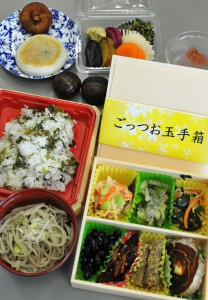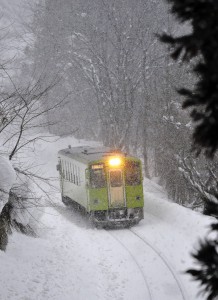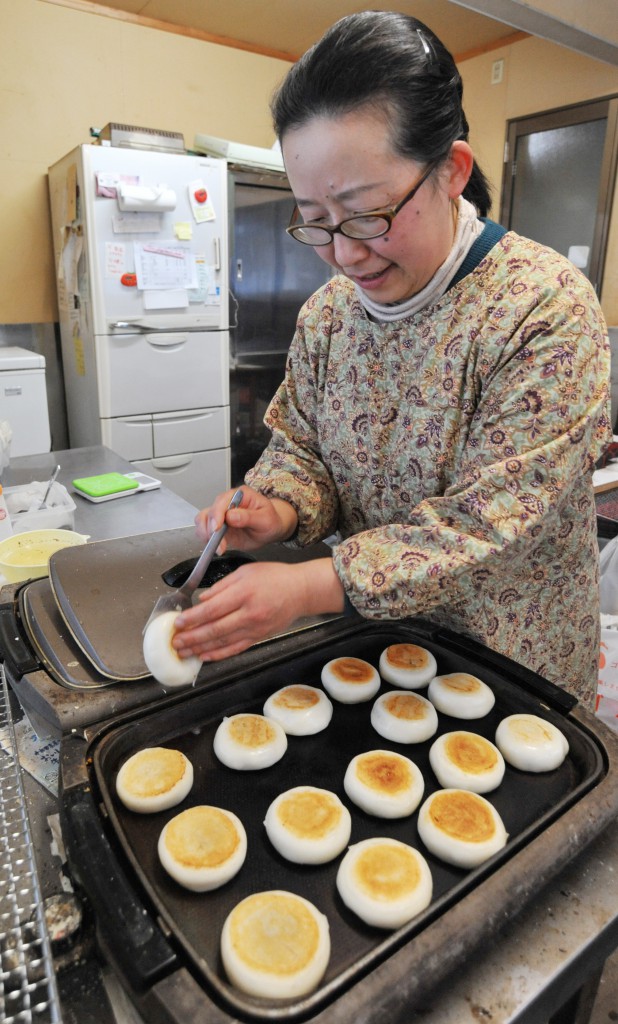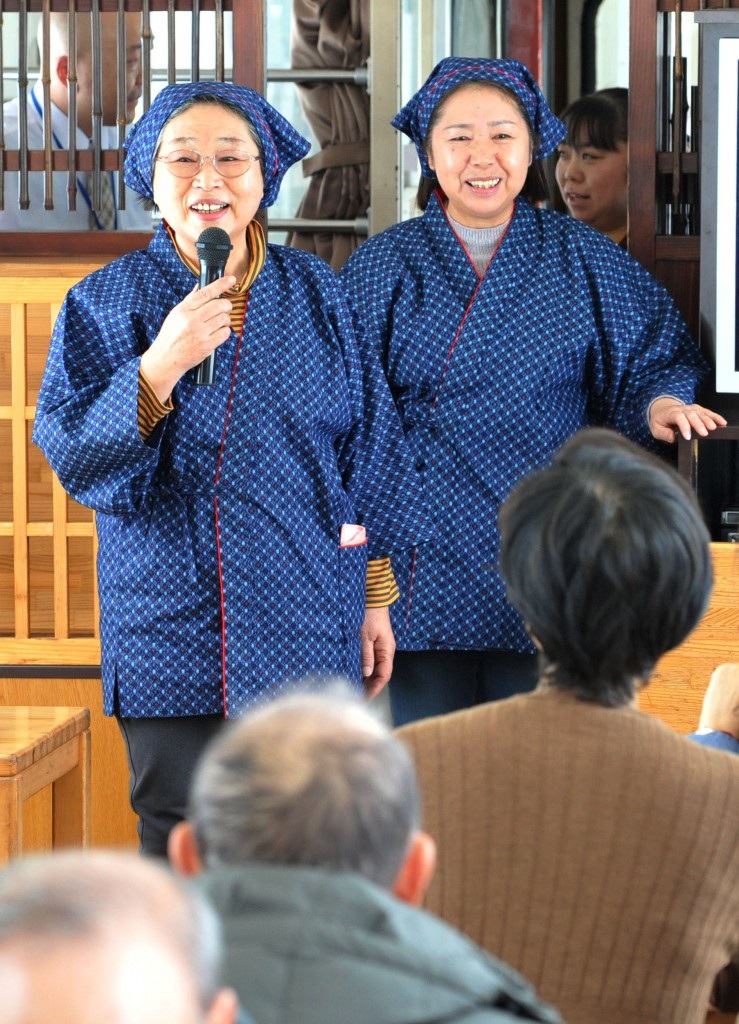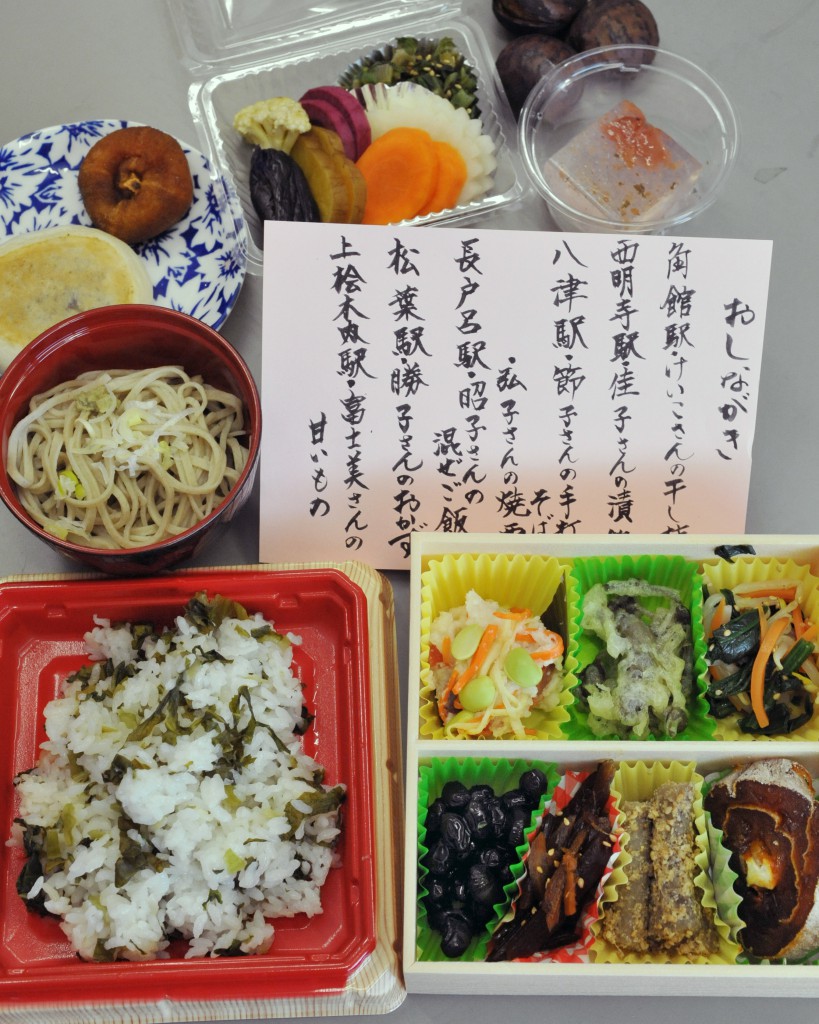
Lunch boxes filled with Akita delicacies all hand-made by local mothers. Passengers often have trouble choosing which to start with.
Tetsuya Onda
– Akita Nairiku Jukan Railway (Akita Prefecture) –
A very special train trip on Gottsuo Treasure Box Train is now one of the must-do things in Akita Prefecture in winter. It’s a limited service provided by the Akita Nairiku Jukan Railway (Akita Inland Longitudinal Railway) that offers a very unique experience of enjoying seasonal Akita cuisine, cooked by mothers from local towns, on the train. The feast are prepared by members of a local farmers group called Green Tourism Nishiki Association, each one serving a personal specialty to eventually offer a multi-course meal on the train.
Gottsuo (pronounced as “Gozzo”) is a local dialect for a word ‘gochisou’, a fancy meal or a treat, in Senboku area of Akita Prefecture. The limited service uses trains with traditional tatami mat floors and seats, leaves Kakunodate Station at 11:02 am and travels 61.2 kilometers to Aniai Station in approximately 1.5 hours. “Please enjoy the meal, all hand-made and full of local ingredients,” said Keiko Fujii, 65, the first president of the association, with a big smile to welcome the guests when the train left Kakunodate.
Passengers seated at Hori-Gotatsu (low, covered tables with a heat source underneath and built into the floor) were soon served roast Saimyoji chestnuts, which are said to be the largest chestnuts in Japan, handmade soba noodles, and Japanese pickles. The plates were welcomed by the travelers with big cheers.
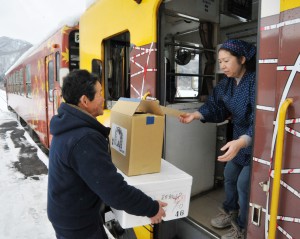
Meals are delivered during short stop at each station. At Ugo-Nagatoro Station, train received seasoned rice.
At every stop, the train picked up new specialties prepared by local mothers such as seasoned rice and boxes of seven different side dishes. At Kami-Hinokinai Station, the train picked up the last and seventh delight, Oyaki (baked rice cake) as a desert, to complete the multi-course menu of the day. A female traveler from Tokyo said that she “fully enjoyed the great combination of hand-made meals and a passage through the snowy country.”
The Treasure Box Train service started in 2007 based on the idea of Fujii and her mates who wished to vitalize the communities and the railway during agricultural off-season.
Offering Kiritampo hot pot was their original idea that they had to give up as it requires cooking on the train. And they came up with the great idea of picking up hot and fresh meals at each stop. The train currently runs six times a year from September through February.
Members of the association agree with each other saying that they were not expecting this to last so long. “We feel the happiest when we are being thanked by our guests. We hope to keep serving local delicacies to support the service,” said Fujii after she saw her guests off the train at the final destination.


